
Africa
08:41, 16-Feb-2019
Nigerian presidential election to see battle between veterans
Updated
10:58, 16-Feb-2019
By Zhou Jingnan
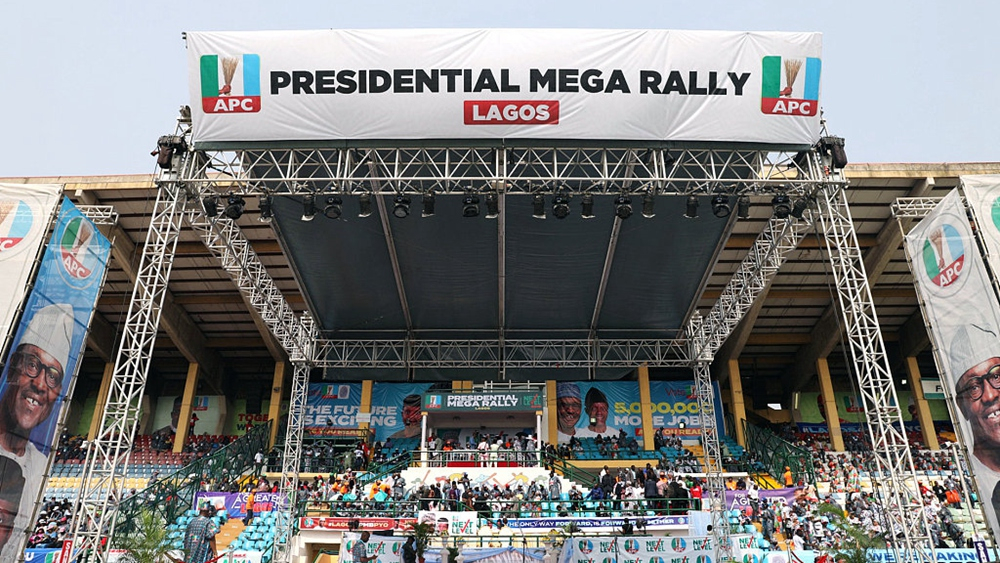
The election for the next Nigerian president was scheduled for Saturday, as voters were planning to place their votes.
However, according to an INEC announcement made just five hours before the polls were due to open, both the presidential and parliamentary elections have been postponed for a week.
The INEC didn't elaborate on reasons, but earlier media reports suggested difficulties in transporting electoral material in some areas.
According to the list released by the country's Independent National Electoral Commission (INEC), around 70 candidates have registered to run for president.
The age difference between the candidates is significant, with 76-year-old incumbent president Muhammadu Buhari being the oldest and 35-year-old Chike Ukaegbu as the youngest.
The number of female candidates has set a record this year with six women contesting in the election.
Buhari vs. Abubakar
Although the election has been delayed, it is widely believed that it will be an intense one between Buhari and Atiku Abubakar - Nigeria's former vice president.
This would be Abubakar's fourth run for the presidency after failed attempts in 2007, 2011 and 2015.
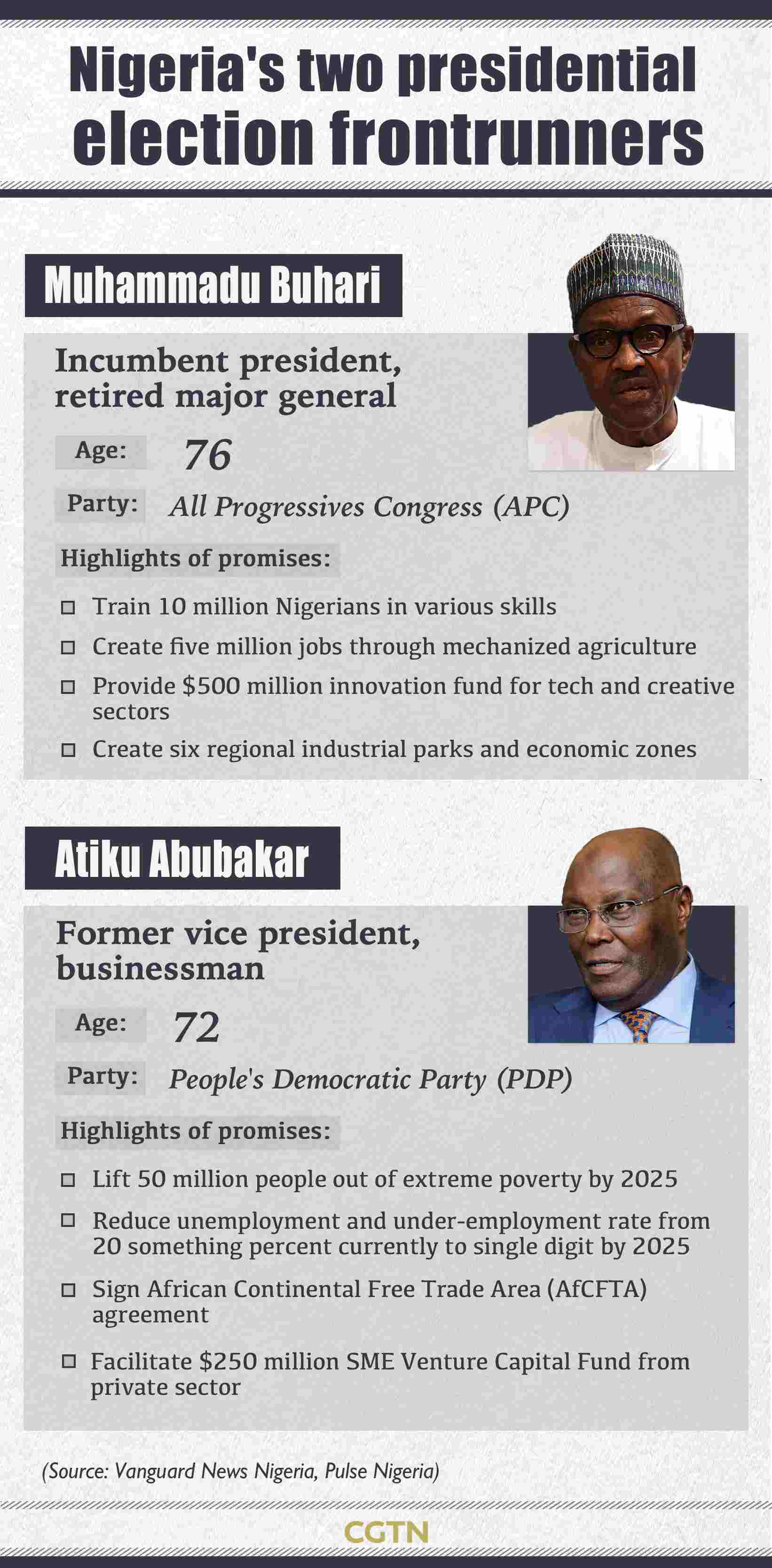
Both candidates have pledged cracking down on corruption and developing infrastructure facilities during their campaigns.
Buhari promised that he would get rid of corruption in his country as early as in 2015 when he successfully defeated then President Goodluck Jonathan.
This time, he has vowed to continue his anti-graft fight.
As for Abubakar, AFP quoted him as saying: "I will shock everyone because I believe that I will fight corruption like never before."
The two candidates have also promised to fix the country's decrepit infrastructure.
In terms of ideology, Buhari's ruling APC and Abubakar's opposition PDP parties do not have clear differences, according to Reuters.
A Reuter's report stressed that competition for control of national oil revenues by elites, patronage and complex rivalries between ethnic groups have played a much bigger role in elections than ideology.
Issues that concern the public
For the general public, it pays less attention to political games between people with vested interests. Instead, they heed more to the issues that affect their normal lives.
Corruption and lack of infrastructure stay high on the concern list of the Nigerian people, which explains why both frontrunners have sworn to further address the problems.
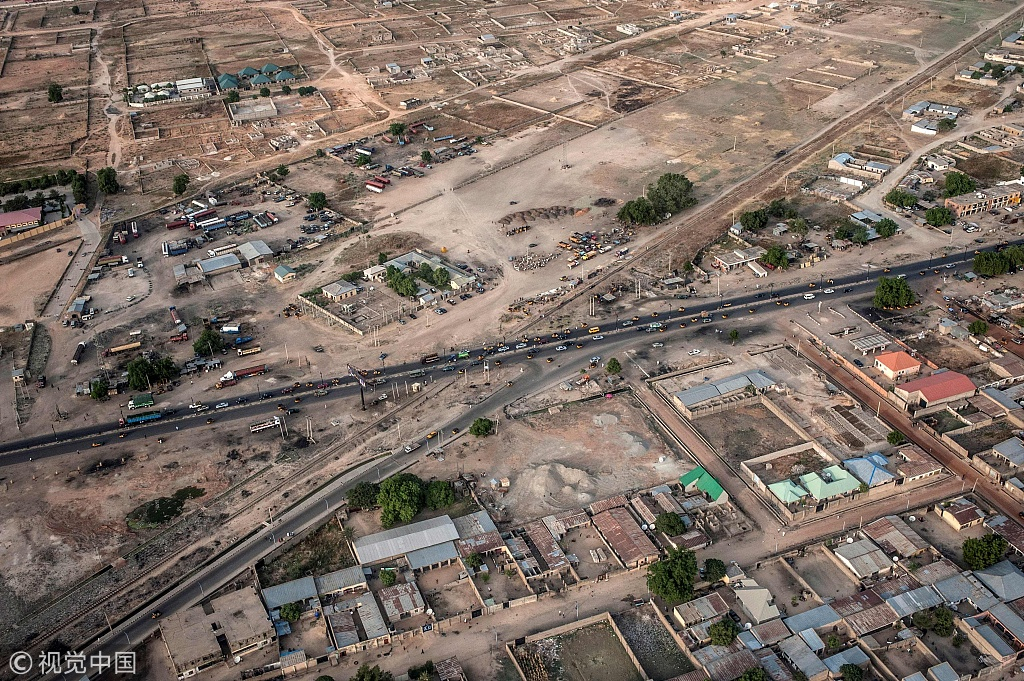
An aerial view shows the poor state of infrastructure and houses in Maiduguri, Borno State, northeastern Nigeria, December 8, 2016. /VCG Photo
An aerial view shows the poor state of infrastructure and houses in Maiduguri, Borno State, northeastern Nigeria, December 8, 2016. /VCG Photo
Other issues that are of great interest to Nigerian voters include:
Economy
Economy has been a perpetual talking point in Nigeria.
The country entered an economic recession three years ago and rose above it in the third quarter of 2017. However, the economic prospects remain bleak.
A report by Guardian pointed out that in the third quarter of 2018, the combination of unemployment and underemployment rates in Nigeria have reached an all-time high of 43.3 percent, with an estimated 49.1 percent of the country's population living below the poverty line.
Accordingly, whether the next president has a plan to improve and diversify Nigeria's economy, that is heavily dependent on oil, is expected to be a major issue.
Security
Violence also remains a chronic headache for Nigerians, particularly the Boko Haram insurgency in the northeastern part of the country.
An AFP article in January said Buhari acknowledged setbacks in the fight against Boko Haram amid fresh attacks by the militants.
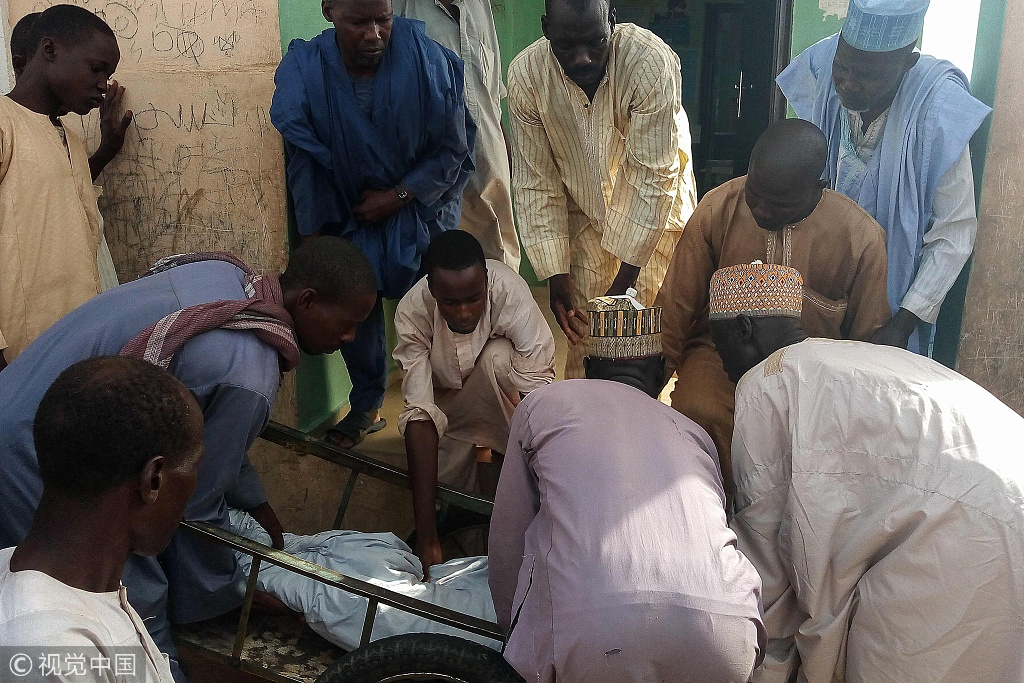
The body of a victim at a hospital after a suicide bomb attack by suspected Boko Haram militants in Maiduguri, Nigeria, May 28, 2018. /VCG Photo
The body of a victim at a hospital after a suicide bomb attack by suspected Boko Haram militants in Maiduguri, Nigeria, May 28, 2018. /VCG Photo
Previously, Buhari repeatedly claimed that the group was virtually defeated.
Conflicts between herdsmen and farmers over land resources are also drawing a growing attention.
A Quartz branch even claimed that pastoral conflicts have grown to become Nigeria's biggest internal security threat, overtaking Boko Haram.
Health of the leader
The age of the two candidates, particularly Buhari's, has had many people asking whether they are physically up for the country's top job.
It is particularly worrying for the voters that Buhari sought medical treatment in the UK for several months in 2017.
However, the seasoned politician insisted that he is robust enough to rule the country for another four years.
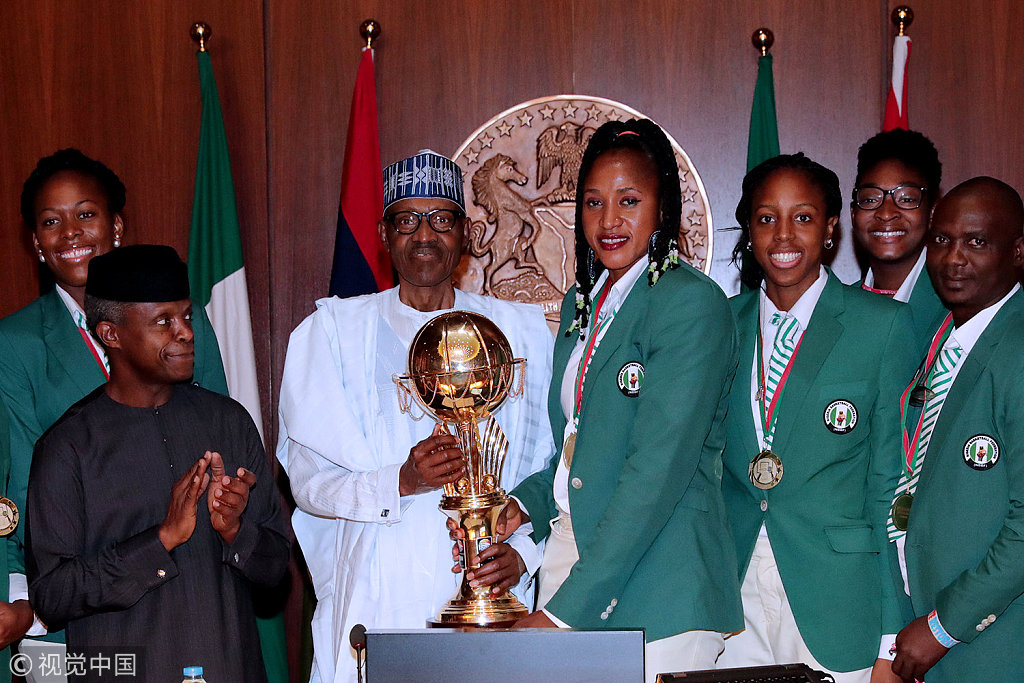
Nigerian President Muhammadu Buhari attends his first cabinet meeting since returning home after three months of medical leave in Abuja, Nigeria, August 30, 2017. /VCG Photo
Nigerian President Muhammadu Buhari attends his first cabinet meeting since returning home after three months of medical leave in Abuja, Nigeria, August 30, 2017. /VCG Photo
Turnout and run-offs
According to INEC data, the prospective turnout in the upcoming election looks positive as the number of registered voters has risen by a quarter to 84 million compared with the number in 2015.
Over half of the registered voters are aged between 18 and 35.
Voter turnout in the 2015 election was 29.4 million, or 44 percent of the 67.4 million registered voters.
The candidate with the most votes is declared winner as long as they have at least one-quarter of the vote in two-thirds of Nigeria's 36 states and the capital.
Otherwise there will be a run-off.
It is yet to be seen whether one of the two veteran politicians, Buhari and Abubakar, or more surprisingly, a third person out of the 70 something candidacy pool, will lead Nigeria for the next four years.
(Cover: Campaign posters of Nigerian President Muhammadu Buhari are displayed during a poll rally ahead of the country's presidential election in Lagos, Nigeria, February 9, 2019. /VCG Photo)
(Infographic by Du Chenxin)
(With inputs from agencies)

SITEMAP
Copyright © 2018 CGTN. Beijing ICP prepared NO.16065310-3
Copyright © 2018 CGTN. Beijing ICP prepared NO.16065310-3